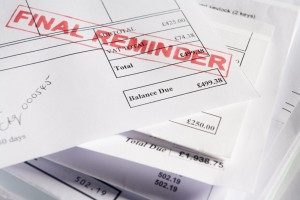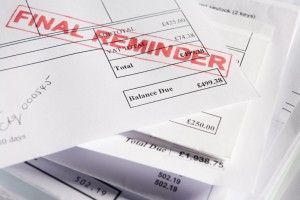 By definition, insolvency is the inability to pay a debt when it is due, and most businesses fear the idea of becoming insolvent Running a business isn’t all about earning money and spending the profits; it’s also about being able to pay back the people and institutions that helped start your business, and of course to pay your creditors in a timely manner.
By definition, insolvency is the inability to pay a debt when it is due, and most businesses fear the idea of becoming insolvent Running a business isn’t all about earning money and spending the profits; it’s also about being able to pay back the people and institutions that helped start your business, and of course to pay your creditors in a timely manner.
Insolvency falls under two categories. The first one is cash flow insolvency, which happens when a business cannot pay its debts on time. The second category is balance sheet insolvency, and this happens when the business has greater amounts of liabilities than assets.
Filing for a bankruptcy is one possible answer when your business is insolvent, though it is by no means the best solution. When a person is served a bankruptcy order, that person will lose valuable assets such as properties, vehicles and stocks. While a bankruptcy order could mean the loss of your house, a minimum delay of a year may be granted.
Another answer could be a debt relief order. People who file for a debt relief order are better placed than those who file for a bankruptcy order, especially because a person who wishes to file a debt relief order must meet certain criteria. Some criteria that would enable a person to file the order would be having less than the debt limit, having not more than the savings limit and many others. In Europe it is less common for someone to file personally for bankruptcy or the order to be taken on an individual. However, it does occur when a person is a sole trader, and when their business is in trouble, they carry sole responsibility.
Insolvency is caused by many different reasons, and one of the most common reasons is not having a business plan. A business that was founded with only the mission to make money with no clear plan to go about this is most likely to suffer from insolvency after some time. Not keeping good accounting and cash flow work sheets could also cause insolvency, as without these, a business can’t keep track of their incomes and expenses.
Insolvency is a whole chapter in a business book, and an overview of the said chapter is needed to be able to understand more about the subject. If you fear that you might be looking at business insolvency, the best thing you could do is to seek the help and advice of a good insolvency practitioner.


Recent Comments